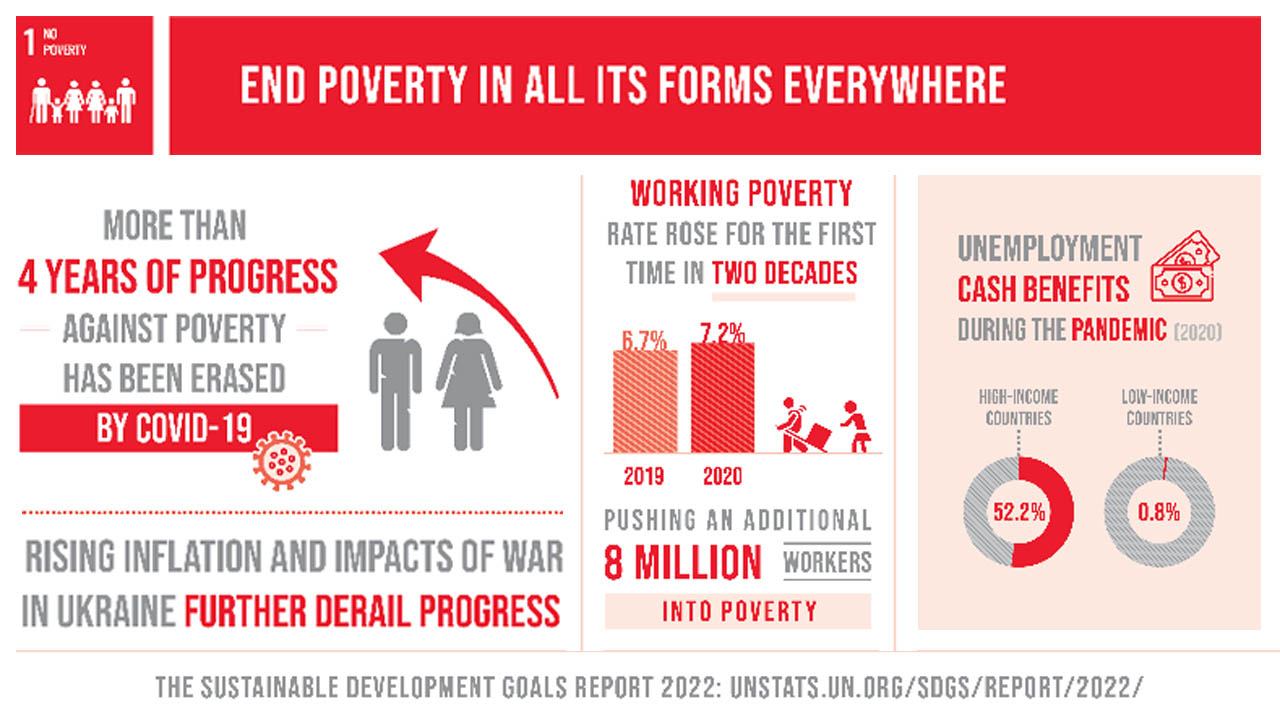Sustainability Today: Poverty must be dealt with, immediately
 CREDIT: FANSHAWE SUSTAINABILITY
CREDIT: FANSHAWE SUSTAINABILITYAccording to the Sustainable Development Goals Report, 2022, the effect of the war in Ukraine and the pandemic will push an additional 75-95 million people into extreme poverty this year.
It is estimated that the human population will touch the 8 billion mark on Nov. 15. What does this mean for humanity? For its existence? Although these may seem like philosophical questions, their implications on building a sustainable world are something we all must dwell upon.
A rising population requires resources and while inequity and inequality persist, there will always be issues that present an ugly picture. One aspect of that picture is poverty, which is affected by various factors including natural disasters, inflation, pandemics, and wars. Take, for example, data from the World Bank that says an average person in a low-income country spends about 66 per cent of their income on food – now, think what would happen when inflation hits? These people will now have to make even harder choices: less food or less heating? Do I pay my water bill or pay for groceries?
According to the Sustainable Development Goals Report, 2022, the effect of the war in Ukraine and the pandemic will push an additional 75-95 million people into extreme poverty this year. This is alarming and represents a disruption in the decreasing global poverty trend. There must be a concerted effort in dealing with poverty or else achieving the first Sustainable Development Goal (SDG): End poverty in all its forms everywhere, will remain a distant dream.
Dreadful word
A related topic is the issue of debt. Student debt is a reality. According to the National Graduates Survey, 2018, “64 per cent of the graduates in 2015 who graduated with student debt still had an outstanding debt after three years.”
Poor financial health affects physical and mental health and the vicious cycle of one affecting the other loops into perpetuity: it’s like being trapped in Daedalus’ labyrinth.
There are ways to reduce if not eliminate poverty, but an action plan is necessary. Governments can help by introducing and strengthening social protection policies and equipping their people with education and skills, so they have jobs and income. The fact that by 2020, 4.1 billion people were unprotected by any social protection cash benefits emphasizes the role these policies play. Also, we need to note that the World Bank in September raised the extreme poverty line to $2.15 per person per day from the previous $1.90, based on 2017 purchasing power parities.
As we head closer to 2030, it rests on us to make small changes in contributing to making our world sustainable. It could be as simple as being informed about financial well-being, helping people in need and making informed choices. If you want to make a difference on campus, donate to The Sharing Shop. If you are a student in need, please see The Sharing Shop for assistance.
Dates to look forward to:
- Nov. 5: International Day to End Impunity for Crimes Against Journalists
- Nov. 6: International Day for Preventing the Exploitation of the Environment in War and Armed Conflict
- Nov. 9-15: International Week of Science and Peace
- Nov. 10: World Science Day for Peace and Development
- Nov. 11: Remembrance Day
- Nov. 15: Day of 8-billion
- Nov. 16: International Day for Tolerance















